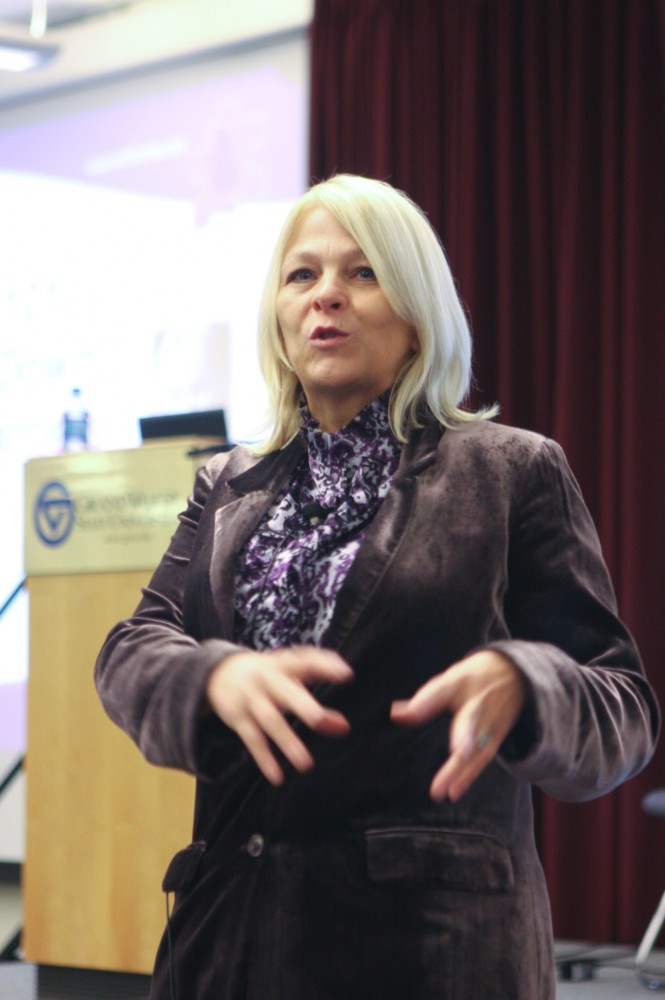Speaker breaks poverty barriers

Dr. Donna Beegle, author of “See Poverty, Be The Difference”, spoke to students about poverty in which she called “Poverty 101”
Dec 6, 2010
Unlike other professionals who study poverty, Doctor Donna Beegle grew up in a family of migrant workers in the Northwest living in poverty for several generations.
Beegle, a middle-aged white woman, noticed several attendees leave her lecture years ago. She later found out they were skeptical about what a white woman would know about poverty.
Poverty crosses all classes, Beegle said. Many do not realize this because they have not had “Poverty 101.” Instead, she said the media teaches poverty through dramatizations and stereotypes.
Beegle wrote “See Poverty, Be the Difference.” She spoke Monday at Grand Valley State University.
Beegle said the problem is how communities and individuals isolate those living in poverty. She remembered her parents going to several agencies seeking help, but the people who could help prevented contact by keeping plastic or glass barriers between them.
She said segregation is also a problem. Beegle recalled several instances of being isolated from what others would term as “shared experiences.” Middle-class people interact with other middle-class people. Teachers give middle-class examples that some students are not able to understand.
She recalled getting off the plane in Atlanta saying, “It feels exactly like a Laundromat.” The other professionals she traveled with did not know what she meant. She changed it to “sauna,” and they got the message.
She drew from a different fount of experiences than her travel companions because she grew up in a different environment, an underprivileged environment. She dropped out of school at 15 and married her first husband.
“Children in poverty become adults quickly,” she said. “They will take on more responsibilities. And that is normal.”
In 1986, Beegle divorced her husband and applied for welfare to help support herself and her two children. At that time the welfare check was $408, but it went toward paying her $395 rent. Today, the average national welfare check is slightly higher at $478, Beegle said.
The key to crossing poverty barriers is mentoring, Beegle said. Isolation keeps impoverished people from interacting with people who could help. A homeless man came up to Beegle after a lecture and said he could not get a job. He did not know a reference who owned a phone. She gave him her number.
“Introduce isolated people to your personal networks,” she said.
Although Beegle spoke of poverty on a national level, students at GVSU make the same choices between rent, food and books for class, said Jo Ann Wassenaar, associate director of the Women’s Center.
The Women’s Center organizes the Student Food Pantry, which is stocked by donations from staff, students and student organizations. To receive a bag of food, a student can go to the Women’s Center, show a student I.D. and fill out a one-page application. The application is used to record demographics, not to prove need.
There is still much need outside of GVSU, said Ashley Keller, president of Hunger and Homelessness. As a student organization, the group volunteers at food banks and soup kitchens in addition to holding donation drives. She wants the group to organize educational events to create awareness, she said.
“[Poverty] is definitely more prevalent than people would imagine,” Keller said. “When volunteering, we always see need.”
Anyone interested in getting more involved can visit www.povertybridge.org, Beegle’s nonprofit organization, or e-mail Hunger and Homelessness at [email protected].

























